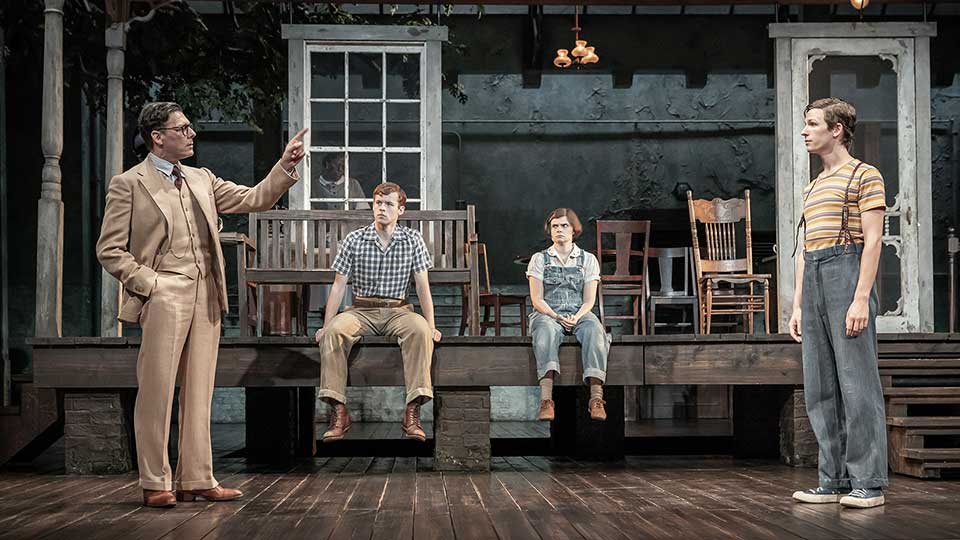This review was written the morning after President Biden took to Independence Hall in Philadelphia, to warn the half of the American electorate flirting with fascism and the age-old allure of white supremacist ideology, that this was anathema to the nebulous concept of American democracy; a cherished ideal to be sure, but one that many, particularly African Americans, may argue, with some force, has never been fully-realised.
As Biden tried valiantly to make a distinction between the so-called MAGA extremists (Make America Genocidal Again) and ordinary Republicans, one is reminded of the tension – the liberal guilt and acute awareness of caste privilege that runs through Harper Lee’s To Kill a Mockingbird.
The 1960 novel, famously adapted to film in 1962 with a barnstorming central performance from Gregory Peck, is arguably the quintessential snapshot of the American psyche; a succinct and earnest critique of the politics of race that make the United States, particularly the South, such a hotbed of inequity and injustice.
“The white man built America!” cries the pinned down Mayella Ewell – the pasty white teen whose abusive father has shamed her healthy sexual attraction to black man Tom Robinson, and coerced her into making a (spoiler) false accusation of rape; a capital crime.
Mayella’s fragile identity is built on a myth of white exceptionalism; the industriousness of a master race that conveniently erases the slave labour that made such expansion possible. Mayella is brain dead, a victim of social and patriarchal forces beyond her control; a stooge for white elites. If she lived in 2022 she’d be a MAGA republican ready to cast her unrepressed vote for a resurgent Donald Trump. That’s the awful thing about To Kill a Mockingbird – the story refuses to lie down. It’s a reminiscence and period piece that intrudes on the present like a middle-aged diagnosis of lung cancer following a teen flirtation with cigars.
Biden’s speech avoided Hilary Clinton’s rhetorical error of badging the opponents of progressivism, deplorables. That’s hotwired into Aaron Sorkin’s adaptation of the novel – the impossibly decent Atticus Finch, mighty fine in the form of Richard Coyle, warning against summary judgement of one’s foes.
One has to consider the antecedents of their grievances, show each man and mental respect. Finch embodies old fashioned notions of moderation, bipartisanship, civility. In short: tolerance. He’s so damned virtuous (though not, stresses Sorkin, immune to the odd spasm of hardwired white superiority), we desperately want to believe his mantra of mutual understanding. Black house servant Calpurnia speaks for a modern audience bred to see centrist politics as both moral capitulation and naivety, when she questions whether there’s anyone – like child rapist and Klansman Bob Ewell, who’s beyond the pale; for whom compromise is appeasement. Yet Finch, for the most part, stands firm. One has to maintain one’s values, even in the face of appalling provocation to set them aside.
It’s not clear if either Harper Lee or Aaron Sorkin, who finesses the dialogue in this theatrical version with his trademark wit and poetry, actually believes in the durability or practicality of the Finch doctrine. Both novel and play have that convenient get out clause – the concept of natural justice; the judicial blind eye that compensates for systemic failure.
The coda’s always been the weakest part of Lee’s story – moral closure in a society that allows none. Appropriately, given the deep southern setting, the proceedings close with a sermon and note of Christian optimism. But for me the story’s over the moment a prison execution closes off the last legal route to justice. The sin is committed, the innocent dies, the killers neck moonshine and return to their unjust lives. What better way to incite liberal theatregoers to check their complacency and rally their troops than by leaving it there?

